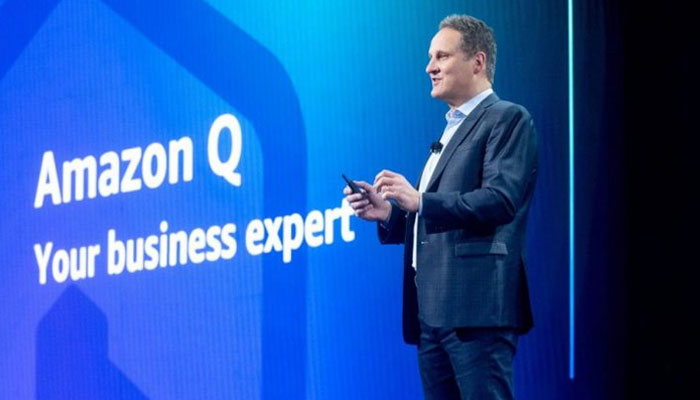Will Amazon's AI chatbot 'Q' outsmart Open AI ChatGPT, Google Bard?
Amazon's move follows OpenAI's ChatGPT, which created a surge in tech firms adopting similar technology last year
November 29, 2023

Amazon has joined the ranks of tech giants by introducing an artificial intelligence (AI)-powered chatbot, Q, to enhance business productivity.
Amazon's move follows OpenAI's ChatGPT, which created a surge in tech firms adopting similar technology last year.
Amazon's Q is designed to perform tasks like summarising lengthy documents, managing group chats, answering customer queries, generating charts, analyzing data, and assisting with coding needs.
The company also emphasised that Q will safeguard businesses from copyright issues, a concern arising from lawsuits against OpenAI over alleged copyright infringement in training its AI system.
Q is slated for gradual integration into Amazon's main business applications and is expected to lure more companies into using its cloud computing services.
Amazon's foray into AI aligns with the broader competition among tech giants in the AI sector, with Microsoft recognised as a frontrunner following substantial investments in ChatGPT.
In September, Amazon announced a substantial investment of "up to $4 billion [£3.2bn]" in Anthropic, an AI firm established by former OpenAI staff. The company also owns Mechanical Turk, a service that employs crowdsourcing for AI model training.
As part of the Q launch, Amazon has pledged to protect businesses from potential copyright claims, a response to lawsuits like the one brought by comedian Sarah Silverman against OpenAI and Meta in July.
Silverman and other authors alleged that their books were used to train ChatGPT, leading to copyright infringement.
Despite a judge dismissing much of Silverman's lawsuit in November, concerns about compensating authors for using their work by AI companies persist.
Authors such as Margaret Atwood and Philip Pullman have echoed the call for fair compensation from AI entities using their creations.
Amazon's introduction of Q signals its strategic move to capitalise on the growing demand for AI-driven tools and services, positioning itself as a key player in the competitive AI landscape.









